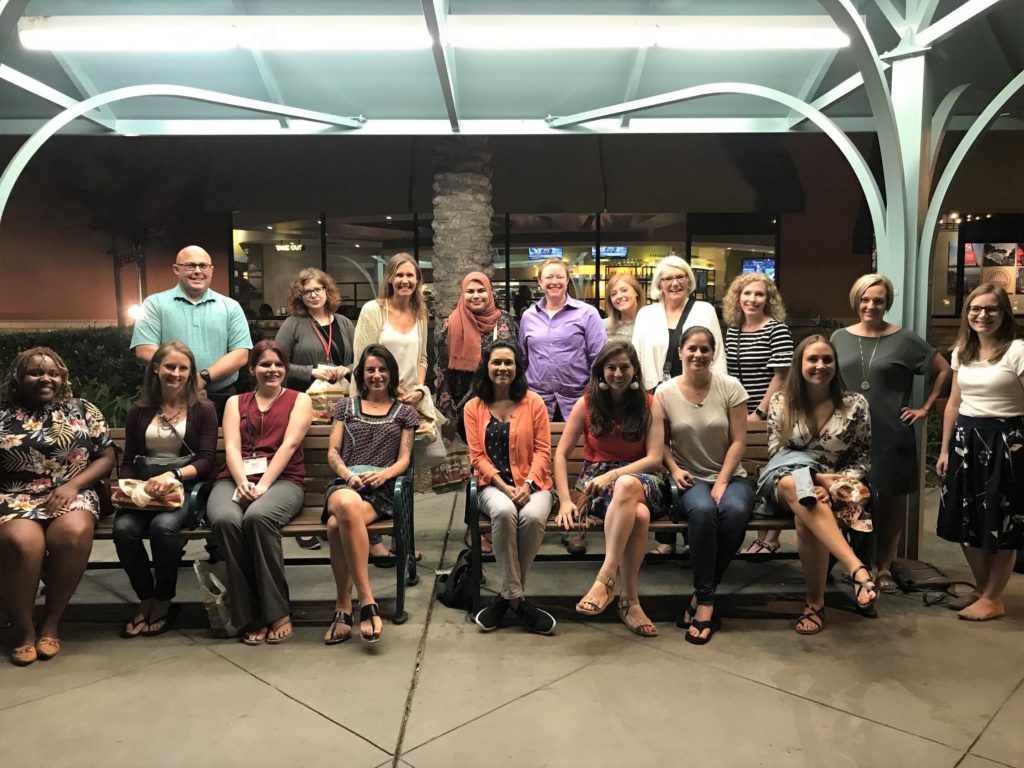STOP Subgrantees go to NSAC
ALSO recognizes that making connections and expanding our knowledge serves to strengthen the work of local programs and agencies, collaborative initiatives, and ultimately, those we serve. By committing to these principles, in partnership with the Office on Violence Against Women, ALSO has created a unique opportunity through the LINK (Locally Implementing National Knowledge) Program for STOP Formula Grant subgrantees to attend conferences and trainings that are aimed to directly inform the work they are doing all over the country.
The Link Program is a travel assistance program that provides STOP subgrantees with the opportunity to attend national events by eliminating financial barriers. Many who apply for LINK do not have funds at their agencies for large national conferences, and those selected are provided with the opportunity to attend at no cost to themselves or their organizations. Once selected, ALSO covers the cost of each participant’s travel, lodging, ground transportation, and federal per diem. Prior to an approved OVW event, ALSO releases an application directly to STOP administrators who are highly encouraged to forward the application to their subgrantees. Individuals and teams are welcome to apply.
On August 28-31, 2018, ALSO staff and STOP subgrantees attended the annual National Sexual Assault Conference (NSAC) in Anaheim, California. This conference brought together over 1800 people who all work to end sexual violence. The theme of this year’s conference was “Bold Moves: Ending Sexual Violence in One Generation.”
At this conference, the LINK program sponsored 15 participants from 10 STOP-funded community-based victim service organizations, legal services, law enforcement agencies, and prosecutor offices. The subgrantees in attendance were from the Women’s Resource Center (OK), Gender and Equality Center (OK), Cleveland County Sheriff’s Office (OK), Florida Council Against Sexual Violence (FL), Branches Domestic Violence Shelter (WV), CONTACT Rape Crisis Center (WV), Carroll County State’s Attorney’s Office (MD), The Fremont County Alliance Against Domestic Violence and Sexual Assault (WY), and Legal Services of North Dakota (ND).
NSAC sessions covered issues of advocacy, policy, gender, sexuality, immigration, religion, and the intersections that exist across these issues. Taking it one step further, sessions at NSAC highlighted the connection between sexual violence and labor unions, agriculture, detention facilities, and the medical profession. One session, titled “Exploring the Intersection of Sexual Assault, Homelessness and Housing,” provided the space needed for critical conversations regarding underserved populations, and safe housing as a necessary part of violence prevention. Another session, titled “Advocacy in Healthcare Settings for Victims of Human Trafficking, Sexual Assault & Domestic Violence,” explained the importance of trauma informed, domestic violence, and sexual assault trainings being a requirement for all medical staff to aid them in identifying patients who may be victims of DV, SA, or human trafficking. It became clear that bold moves across the board are needed and necessary to put a stop to sexual violence.
Over two-and-a-half days, LINK participants and ALSO STAAR Project staff were able to connect with each other for in-depth discussions about what they learned at NSAC and their experiences with working to address sexual assault, as well as emerging and chronic issues. This began with a pre-event conference call, and continued with an in-person meeting over dinner at the end of the first day at NSAC. Conversation at the dinner table that night included reflections on observations from the first day of the conference, and ideas for sharing with teams back home.
After each LINK event, participants create action plans that showcase their acquired knowledge and include steps to implement new information in their jurisdiction. There were several sessions at NSAC that addressed the topics of human trafficking and the unique barriers faced by Native victims of sexual assault. One participant, who attended NSAC with the goal of improving the response to Native women survivors stated that, “learning how to improve our responses to sexual assaults, particularly for Native American clients, and how to spot different forms of human trafficking would be hugely important to expanding our services in a meaningful way.”
Armed with new knowledge about emerging issues and best practices, resources, and meaningful connections, LINK participants return to their respective jurisdictions to begin making their own bold moves to end sexual violence.
-- By Myasar Ihmud, Program Coordinator, ALSO’s STAAR Project


